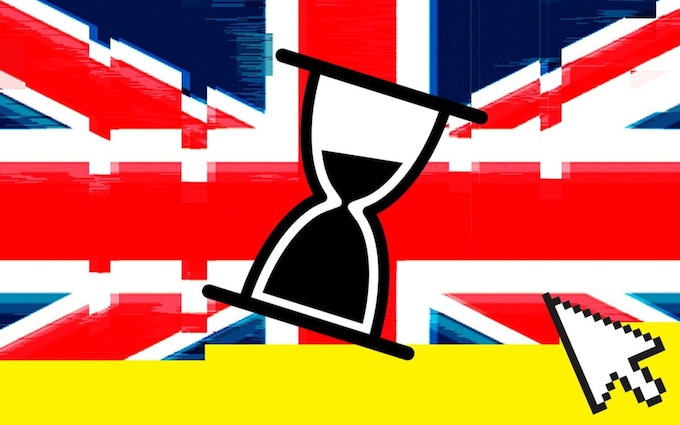
In 2017, Nils Pratley, The Guardian’s financial editor, wrote that “Labour’s water renationalisation plan is a damp squib… Jeremy Corbyn’s manifesto pledge would be expensive – a simpler remedy would be tougher regulation.” But fast forward five years, and the same newspaper recently published this: “The Guardian view on water companies: nationalize a flawed private system…[it’s] time to fix Britain’s broken private utility model, whereby natural monopolies are able to dupe weak regulators.”
Lately, virtually every media outlet in the country — from left to right — has been shouting about how it’s “time to fix this broken water industry,” and deliberating the prospect of ending privatization.
What’s changed so drastically in Britain over the past six years that the country has gone from slating a political leader for emphasizing the need to renationalize utilities and recover control of power, gas, and water industries, to joining calls to end privatization?
Firstly, there is now no denying that the country’s water industry is in crisis.
News that Thames Water — the UK’s largest water and wastewater company, which supplies more than a fifth of the UK population — is in £14bn of debt raised the alarm about the dire state of the industry, something that Jeremy Corbyn and other anti-privatisation campaigners have warned about for years.
Thames Water was established in 1989 during the privatisation of the water industry in England and Wales under Margaret Thatcher. The rationale was that privatization would unleash the investment needed to upgrade the country’s Victoria-era sewage network.
Instead, the opposite has happened. Today, the UK’s main water utility is unable to deliver a reliable service under the weight of the huge debts it has amassed since it was sold to private investors more than three decades ago. The shambles that the industry was left in has been pinned on “‘widespread financial engineering’ to boost dividend payouts to shareholders,” according to Dieter Helm, a professor of economic policy at the University of Oxford.
Similar warnings have been made by David Hall, a visiting professor at the Public Services International Research Unit at the University of Greenwich in London, who said, “money has been taken out, not put in.” Hall estimated that since privatization, water companies have collectively paid dividends worth £75 billion, when adjusted for inflation. Much of those payouts have been funded by huge amounts of new borrowing.
On top of the financial wreckage, Britain’s coastal waters and rivers are contaminated with raw sewage. In 2022, there were more than 389,000 discharges of untreated sewage into Britain’s rivers, totalling over 2.4 million hours worth of pollution. With 75 percent of the country’s rivers posing a serious risk to human health, unsurprisingly, the UK consistently ranks as one of the worst countries in Europe for water quality.
Growing costs
Adding to outcry around the water industry crisis, and recognition that the current system must change, was the announcement that water bills are to rise.
In June, water companies said that as a means of tackling the sewage crisis and the consequences of climate change, they were drawing up plans to increase household bills by up 40 percent. The increases could see annual bills rise from £450 a year to £680.
The announcement coincided with the Bank of England hiking interest rates to 5 percent, piling additional pressure on millions of people with mortgages, and many renters whose landlords are rising rental costs to finance their growing mortgages.
Energy bills have also soared in Britain. Since January 2022, the UK has faced a 129 percent increase in gas prices and 66 percent increase in electricity prices. The TUC, the UK’s main trade union body, has called on the government to set up a “public energy champion,” and estimates the government could use excess profits made by this public company to cut bills and insulate homes, improving their energy efficiency.
Other industries in crisis
But nationalization calls are not limited to the country’s water and energy industries. Demands for railway nationalization have been growing amid a collapsing privatization model. Even Margaret Thatcher, after selling off many of Britain’s public assets, including water, energy, and buses, believed the railway was a “privatization too far.” However, the policy was part of the Tory manifesto in 1992, and the railway went on to be privatized by Prime Minister John Major.
In a similar sorrowful story to the water industry, Britain’s railways have been beset with problems under privatization. In 2022, the rail infrastructure owner Network Rail, whose £56.1 billion debt is underwritten by UK taxpayers, spent more on interest on loans than improving and maintaining the railways.
Amid spiraling debt, train networks have been beset with cancellations and delays. In November 2022, following a spate of cancellations and operators relying on staff volunteering for overtime because they had failed to recruit enough workers, the rail union RMT criticized train operators and the government for their failure to address systemic problems in the railway network.
RMT General Secretary Mick Lynch said: "Britain's broken privatised model has been exposed for being completely inadequate to the needs of running a modern railway.
"Companies that are making huge profits from the industry and charge exorbitant fares to passengers, are trying to blame staff for their short comings.”
Labour’s role
Plans to nationalize the railway was one of the first major policy calls that Jeremy Corbyn made as Labour leader. Speaking at the party conference in 2015, he said that returning railways to the public sector would be one of the first acts of a Labour government.
Yet despite industries like water and rail sinking further into deterioration as company bosses continue making obscene profits while hiking costs for ordinary households already struggling under a cost-of-living crisis, the current leader of the opposition party refuses to commit to nationalization.
In March, shadow chancellor Rachel Reeves abandoned Labour’s promise to nationalize water, saying: “Within our fiscal rules, to be spending billions of pounds on nationalizing things, that just doesn’t stack up against our fiscal rules.”
In the wake of the collapse of Thames Water, Labour MPs have been urging Keir Starmer to rethink the party’s nationalization policy. Describing privatization as a “rip-off” and a “failure” for working people, a group of backbench Labour MPs are now calling for the leadership to reconsider.
Former shadow chancellor John McDonnell is among those making such calls.
“Water privatization has been the biggest rip-off privatization of them all. Fortunes have been made at all our expense as the service has deteriorated, charges have gone through the roof, massive debts have been incurred to pay shareholders, and they’ve polluted our rivers and seas. Thirty years of regulation has significantly failed. Public ownership is the only serious option from here on,” said McDonnell.
Rising to the occasion
But sadly, and worrisome to many, the U-turn on water nationalization is just one of a string of policy turnarounds made by the current Labour leadership.
In 2021, at his first in-person party conference, Starmer had said winning is more important than party unity. And he seems to have stood firm on his ambitions to do whatever he can to whip the party into governing form, at the expense of unity and promises.
One of the most controversial of the U-turns was the abolishing of plans to eliminate tuition fees. Starmer had promised to “end the national scandal of spiraling student debt” with a pledge to wipe out tuition fees. Defending his change of position, the leader of the opposition party said the country found itself in a “different financial situation.”
The commitment had been made during his campaign to become party leader. It was one of 10 pledges which some believed were made to woo the Left of the party.
“Public services should be in public hands, not making profits for shareholders… Support common ownership of rail, mail, energy and water; end outsourcing in our NHS, local government and justice system,” Starmer had said.
However, these promises are shifting for Labour in a number of sectors.
At the Labour conference in 2022, Starmer announced the launch of Great British Energy, a publicly owned energy run on clean UK power. But this year, the Shadow Chancellor confirmed the energy policy had also been abandoned, with only rail in line for nationalization under a Labour government. At the same time, Starmer suggested “a massive move forward” on water quality could be made without nationalization.
“I think with stronger regulation, stronger enforcement of regulation, and accountability at the top of the water companies we can make a massive move forward on this,” he told reporters.
The health crisis persists
Then there’s the National Health Service. On July 5, the nation’s beloved NHS turned 75, sparking a high-profile showering of gratitude and admiration for the service across the political spectrum.
But such adulation didn’t tell the whole story, which is that for over three decades, governments have allowed forms of privatization to infiltrate the NHS. The Health and Social Care Act 2012, for example, removed duties of government to provide NHS services. Then there is the tendering of contracts for services and making them available to private companies.
Despite widespread concern about NHS privatization from trade unions, health leaders, politicians and the wider public, Starmer has hinted at possible privatization. Writing in the Sunday Telegraph – the media foghorn for the ruling Conservative Party – Starmer declared nothing was “‘off limits’ when it came to the NHS. It should not be ‘treated as a shrine,’” he said, repeating the line employed earlier by his Shadow Health Secretary, Wes Streeting.
He continued that the NHS must be “reformed,” a phrase that is believed to be a cue for root-and-branch restructuring for the benefit of the private sector and the wealthy. Reform “doesn’t mean rearranging chairs,” Starmer added, and was not about spending more money since “investment alone won’t be enough.”
It is broadly believed that the ruling Conservatives, with their in-fighting and chaos amid a backdrop of soaring bills and broken industries, will gift Labour a win in the 2024 general election. But by ditching socialist policies and purging the Left, many have warned that Starmer may risk alienating core Labour voters.
In 2017, polls showed that Jeremy Corbyn’s nationalization plans were music to the people’s ears. Given the further deterioration of industries like water and rail, today nationalization remains more popular than ever. As such, Labour should think carefully when changing course about public ownership and should listen to what constituents think and want.
As a barman at North Nineteen — a pub in Jeremy Corbyn’s constituency of North Islington, where support for the former Labour leader remains strong — said recently:
“The likes of the NHS should be left to the public to decide, not politicians.”













